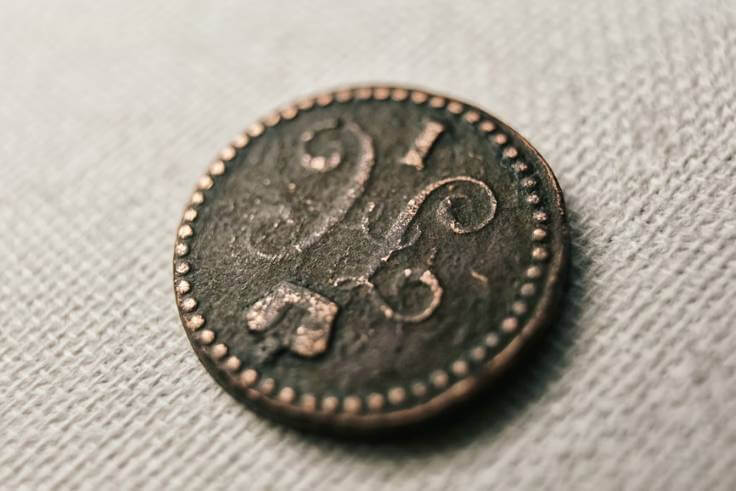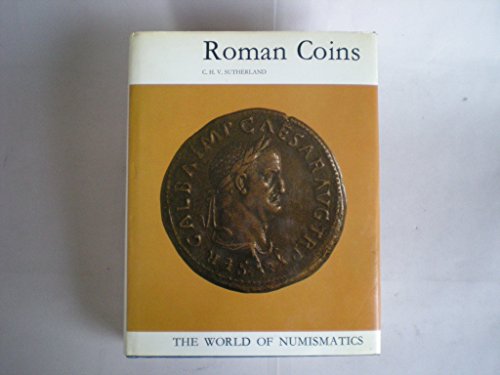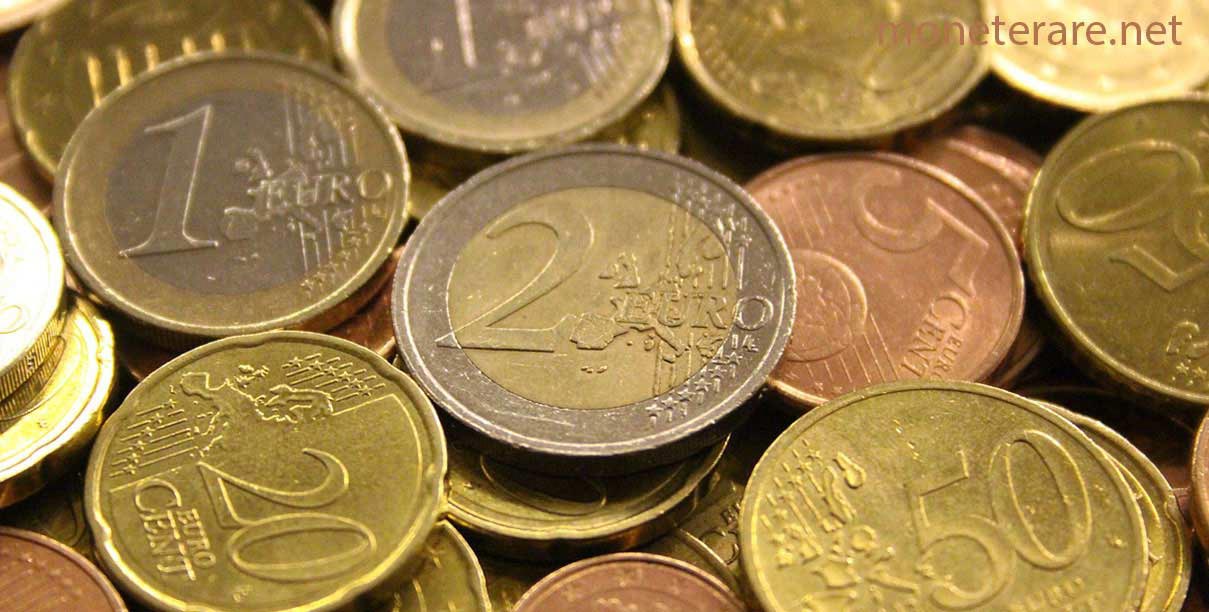Here's a method that is structured: Here's a structured approach:Database Selection: Choose a database that catalogs museum collections and numismatic holdings. Museum databases, such as the ones provided by the British Museum, Smithsonian Institution and other online platforms that focus on museum collections or objects of numismatic origin, are choices.
Define Research Focus: Specify your research objectives. Are you searching for details on the numismatic collection of a specific museum? exhibitions that feature coins, academic articles on numismatics, or historical and cultural contexts surrounding the numismatic display. Clarify your goals to guide your investigation.
Use keywords that relate to both the field of numismatics (numismatics) as well as museums ("numismatic collection," coin exhibitions," museum catalog"), and include specific geographic or museum names when appropriate. Utilize the advanced search option to sort by date or collection type.
Data Collection: Get access to information on numismatic artifacts held in museums. This includes detailed descriptions of the objects, images, provenance, and historical significance. Explore digital catalogs listing coins categorized by period, civilization or theme.
Analyze the data to assess the significance of the collection of numismatics in museums. Study how museums curate and interpret coins in the context of larger historical and cultural narratives. Compare the ways museums present numismatics with a focus on educational strategies and interpretive frames.
Cross-References: Confirm that your information is accurate by comparing it with other databases in museums or other academic sources. This will ensure accuracy and completeness of your research. This also gives the complete picture of numismatics within museum contexts.
Documentation: Document your findings thoroughly by citing sources and highlighting the methods you used. Record details about the databases used, search terms used, and the significance of every source you use to answer your research needs.
Stay up-to-date. Museum exhibitions and numismatics change constantly. Check databases regularly for information on the latest acquisitions, temporary exhibits, or scholarly publications which could enhance your research.
Follow these steps to successfully make use of databases to explore the numismatics field and how it relates to museums. This approach allows for an in-depth investigation of the exhibit, interpretation and scholarly examination of coins in museum settings. It provides insight into their historical, educational and cultural significance. Have a look at the most popular banknote info for website advice including numismatic value, banknote, gold coins, banknote catalog, banknote forum, banknote value, currency, uncirculated, coin storage, coin minting and more.

What Can I Do To Research Numismatics In Connection To Mines With An Online Database?
The research is organized. Here is a methodical way to conduct this research: Database selection: Choose databases that specialize in the field of mining history, minerals resources, as well as metals that are employed in coin production. Examples include geological survey, mining company database historic mining records, as well as Numismatic platforms.
Define Research Focus: Specify your research objectives. Are you interested in learning more about the mining history of historical mines that provided metals for coinage, the geographic origins of coinage metals, mining techniques employed in various historical periods or the economic effects of mining on numismatics? Find out what interests you are interested in to help guide your study.
Search method: Use keywords like "mining history," "coinage Metals," "historical Mines," and if relevant, specific metal names, (such as gold, silver and copper), or geographic areas. Sort results by advanced search options. This includes filtering by dates, types of documents (such geological maps and mining reports, etc.)) and mining techniques.
Data Collection: Find details on the historical mining operations that produced the metals used in coinage. Gather information about mine locations dates, dates, the metals mined as well as production numbers, and any documents related to mining activity.
Study the data to gain a better understanding of the connection between mining (mining) and numismatics. Examine the effect of availability of quality and quantity of metal sources on coin production. Examine the different coinage standard adoptions and the economic significance mining regions had in the field of numismatics.
Cross-Reference: Check the validity of your study by comparing data from multiple databases and other sources. This ensures accuracy and the completeness of your study. This also provides an extensive picture of mining activities that have affected numismatics.
Documentation: Documentation is important. Note sources and the methods employed. Note the details of the databases you used as well as the search terms that you searched with, and the way each resource is related to your research.
Keep updated Current discoveries and new research may change mining records. Follow updates from geological reports mining company report, and the numismatic platform to stay up-to date on the latest mining and numismatic discoveries.
Databases can be used to research numismatics related to mining operations by following these easy steps. This technique allows for an in-depth analysis of the mining operations that provided the essential metals needed for coin production, offering an understanding of the technological, economic, and geographic factors that influence numismatic developments. Read the most popular visit website on coin news for blog tips including coin show, coin mold, rial, numismatic value, central bank, banknote production, mint, pound, coin expo, coin production and more.

How Do I Use A Database To Research Numismatics In Relation To Collectors?
This research is structured using a database that focuses on collecting interest, collections, numismatic associations, and profiles of collectors. Here's a systematic approach to conduct research on this subject: Database Selection: Choose databases that are specialized in collector profiles, numismatic collections, and numismatic societies. There are a myriad of examples, including online collector forums as well as websites of numismatic societies (such the American Numismatic Association), as well as research databases and collector databases specifically focused on numismatics.
Define Research Focus: Specify your research objectives. Do you want to know the motivations and interests of collectors in general and the development of noteworthy collections, the current trends in numismatics collection, the reasons for historical or cultural significance of collecting? Clarify your focus to guide your research.
Search Strategy: Use keywords like "numismatics collectors," collector profiles" or "numismatic societies," if you wish. You may also include the names of collectors, or geographical regions if relevant. Search results can be filtered using collecting specialties such as ancients coins, exonumia and paper money.
Data Collection: Access details about collectors, including their biographies, collecting interests, notable acquisitions, and contributions to numismatic scholarship or community activities. Gather details about the formation and dispersal of noteworthy collections with auction results as well as catalog entries.
Analysis: Analyze data to comprehend the motives and motivations behind the numismatic collection. Find out how collectors have an impact on trends in collecting as well as market demand. They can also aid in the preservation of numismatics knowledge through exhibiting, publishing or even implementing educational programs.
Cross-Referencing Verify information by cross-referencing it across databases, auction archives as well as numismatic magazines and even profiles of collectors. This will ensure the accuracy and completeness of your research and give insight into the different aspects and contributions of collectors to the numismatic community.
Documentation: Document your findings thoroughly including citations to sources and noting the methods used. Notate the database names or search terms, as well as the relevance of each source in relation to your research.
Numismatic trends and collecting interests change over time. Follow the latest updates on forums for collectors and publications from numismatic societies and databases for specialized collectors to keep up-to-date with the most recent developments and trends.
You can make use of databases to examine numismatics through eyes of collectors by following these simple steps. This technique allows a thorough investigation of the motives, interests, and contributions made by collectors in the world of numismatics. It also provides valuable insights into the cultural and historical dimensions of collecting. View the recommended currency authentication tips for site info including coin collecting, uncirculated coins, banknote marketplace, coin planchet, coin holder, collector, banknote design, banknote grading, half-dollar, currency forum and more.

What Can I Do With Databases To Study Numismatics Regarding Educational Institutions?
Conducting research on numismatics related to educational institutions requires the use of databases that focus on academic programs, research initiatives, museum collections, and scholarly papers in numismatics. Here is a methodical way to conduct this research: Database selection: Select databases that specialize in museums and academic institutions. Examples include library catalogs from universities journals, academic databases (like JSTOR), museum databases (such as those provided by museums that offer numismatic collections) as well as institutional repositories.
Define Research Focus: Specify your research objectives. Are you looking for information on numismatic courses provided by universities, research done by academic institutions or collections of museums that are associated with educational establishments? Clarify the focus of your search.
Search Strategy: Add keywords like "numismatics course"," "academic work in the field of numismatics" and "university museums with collections of numismatics" and also specific institutions or geographical regions, if applicable. Use advanced search options for filtering results by dates and academic disciplines (history archaeology classics) as well as the type of publication.
Data Collection: Get information from educational institutions about courses in numismatics and research projects, as well as collections of museum artifacts and the publications of scholars. Find information on the syllabus for your course, research abstracts, museum catalog entries, and publications written by faculty or researchers who specialize in numismatics.
Examine data to determine the institution's research and academic contribution to the field of numismatics. Study the course scope in numismatics. Also, consider the interdisciplinarity approach to numismatics, the significance and impact of the museum collection on numismatic scholarship as well as the impact of numismatic books.
Cross-Referencing: Confirm your research findings by cross-referencing data across several databases, university websites, museum collections, and academic journals. This guarantees accuracy and completeness in your research, and gives you complete information about the role of education in the field of numismatics.
Documentation: Record your findings thoroughly by citing sources and highlighting the methods used. Note the details of the databases used, search terms used, and the significance of every source you use to answer your research needs.
Stay updated: Numismatic research and educational programs are constantly evolving with new programs, research projects, and publications. Keep up-to-date by keeping updated on news from university sites, museum announcements, academic journals, and other sources for the latest developments.
These steps will help you look up databases that are related to educational institutions. This method allows for a thorough study of the educational opportunities, research contributions, and scholarly projects that define the study and appreciation of numismatics in the university and museum settings. Take a look at the most popular https://zlatemince.cz/ for website tips including currency exchange, coin production, nickel, banknote album, coin collecting, real, platinum, proof, banknote society, central bank and more.

How Can I Find Out More About Numismatics With Respect To Industry Consultants?
Here's a method for conducting this type of research: Database Selection: Choose databases that focus on consulting firms, industry reports and publications related to numismatics. Here is a systematic approach for conducting this kind of research: Databases Selection: Select databases that focus on consulting firms, industry reports, and publications related to the field of numismatics. Some examples include websites and business directories as well as publications from numismatic groups and databases that are industry-specific.
Define Research Focus: Specify your research objectives. Are you seeking information about consulting services that are offered to numismatic companies and market analysis of numismatics and the expertise of specific consultants or industry consultants within a specific industry? Find out what you're seeking to reduce your search.
Search Strategy: Make use of keyword phrases such as “numismatic industry consulting, "numismatic consulting companies", "market research reports on coinage" and geographic regions, in the event that they are applicable. Results from searches can be filtered by date, consulting services, and specialties of consultants by using advanced search features.
Data Collection: Access data on consulting firms specializing in numismatics, as well as industry experts who provide services to numismatic companies. Find information on consultants such as profiles, and their areas of expertise (market research and collection management authentic) and testimonials from clients as well as industry reports and more.
Analyze the data to evaluate the importance and contributions of consultants within the numismatics industry. Examine the knowledge and methods used by consultants to advise on numismatic investments, market trends as well as collection management strategies and issues of regulatory compliance.
Cross-Referencing: Verify your findings by comparing information across multiple databases, consult firm directories, numismatic society publications, and reports from industry. This will ensure that your research is reliable and comprehensive, giving you an entire view of the world of consulting numismatics.
Documentation: Documentation is essential. Use sources to cite and record the methods used. Keep track of details on the databases you have accessed, search terms used, and the significance of every source you use to answer your research needs.
Stay updated. Trends in the market, consulting services, and the most recent economic trends and regulatory updates will affect the numismatics industry. Updates from consulting firms' websites as well as reports from the industry, numismatic society journals, as well as other publications will keep you informed of the latest trends in the market and information.
Following these steps, you can effectively make use of databases to research numismatics in relation to industry consultants. This method allows for a thorough analysis of the advisory services, market analysis, and strategic insights provided by consultants within the numismatic industry. They offer insightful insights into investments, business operations and market dynamics within the numismatics industry. Read the top rated circulated hints for website recommendations including coin holder, rand, banknote news, coin design, rand, coin auction, banknote catalog, currency forum, central bank, banknote identification and more.
